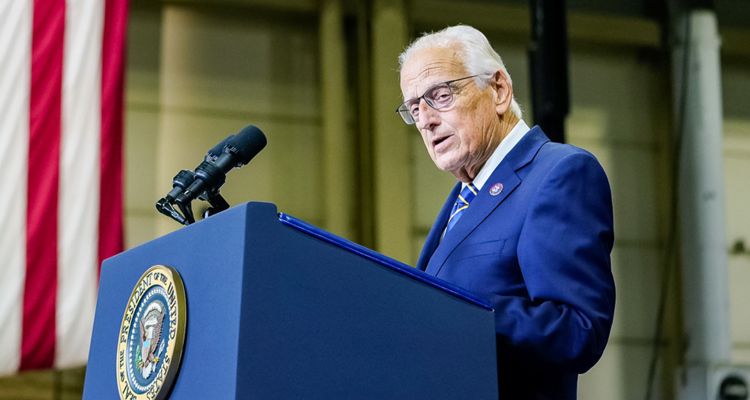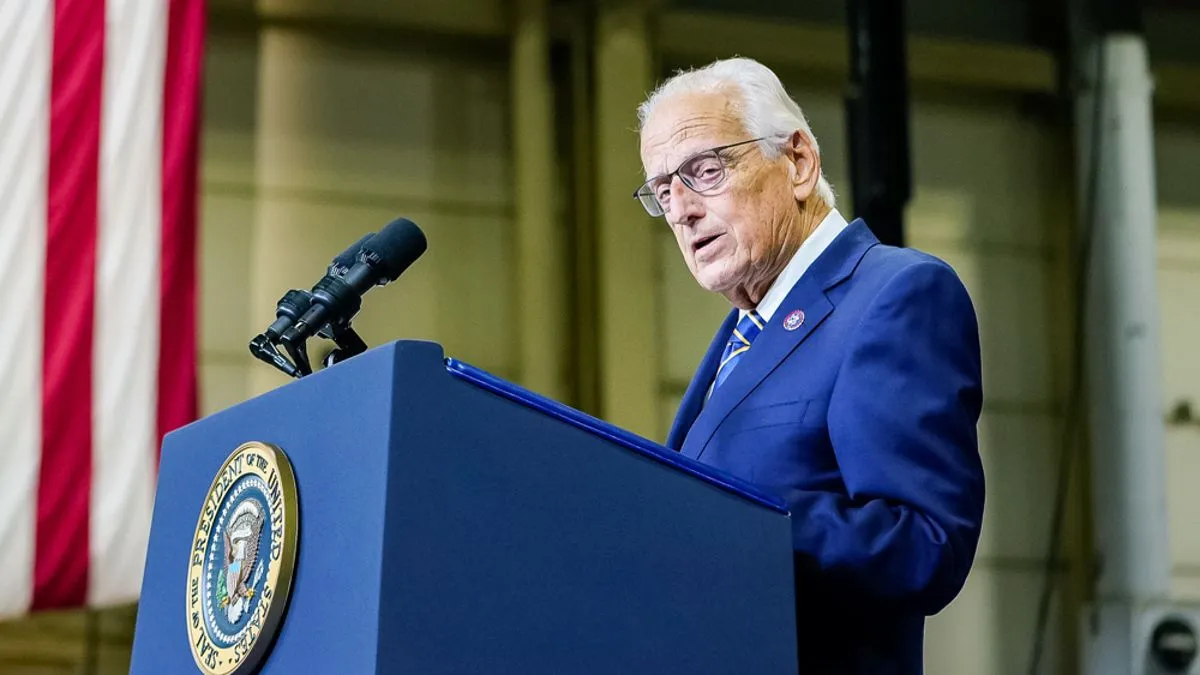
(Official White House Photo by Adam Schultz)
Last week, Ticketmaster faced renewed congressional scrutiny over its business practices – and specifically the role that “dynamic pricing” played in elevating the cost of tickets to Bruce Springsteen’s 2023 concerts. Now, the ticketing giant has addressed the situation with an “official statement.”
The NFT-equipped ticketing platform just recently published said official statement on Ticketmaster’s business website, and the public response arrives one week after New Jersey Representative Bill Pascrell Jr. took aim at the company in a letter addressed to Live Nation president and CEO Michael Rapino.
A longtime Ticketmaster critic (and the author of the BOSS Act), the lawmaker in the multifaceted message called on the Live Nation subsidiary to disclose, among an array of other things, how many of Springsteen’s 2023 shows will take place at venues owned by the business, whether there’s a “price ceiling” on the passes, and whether “there are restrictions on purchasing a single ticket.”
In addition to reportedly elevating the price of certain “platinum” Bruce Springsteen tickets to north of $5,000 apiece, dynamic pricing subsequently caused some Harry Styles “platinum” passes (which “are being sold for the first time through Ticketmaster,” the company’s website emphasizes) to cost more on Ticketmaster than on third-party resale platforms.
While Representative Pascrell Jr. requested that Live Nation and Ticketmaster respond to his inquiry by September 30th, the entities have already published a roughly 779-word official statement, as mentioned at the outset.
“We appreciate and share Congressman Pascrell’s passion for improving the ticketing industry and look forward to continuing our dialogue with him,” Ticketmaster’s response begins. “As the resale ticketing market has grown to more than a $10 billion dollar [sic] industry over the past few years, artists and teams have lost that revenue to resellers who have no investment in the event going well or any of the people working behind the scenes to bring the event to life. As such, Event Organizers have looked to market-based pricing to recapture that lost revenue.”
From there, the document indicates that these same event organizers, not Ticketmaster, establish “different onsale parameters” as well as “pricing strategy and price range parameters on all tickets, including dynamic and fixed price points.”
After dedicating a couple paragraphs to explaining that “supply and demand drives pricing decisions,” the text proceeds to paint dynamic pricing as a tool that secures “more value for the artist at the initial onsale” by preventing resellers from scooping up passes at face value and then reselling them for a profit.
“Ticketmaster builds the technology to empower the strategy that the artist team sets,” the document reiterates. “The secondary market sees over $10 billion in ticket sales and continues to grow rapidly. Through Ticketmaster, dynamic pricing has captured over $500 million for Event Organizers from resale markets in 2022 alone.”
Finally, before concluding by highlighting the ways in which Ticketmaster has purportedly advocated for reform in the ticketing space – including alleged support for New York’s total-cost law, which execs hope to see “extended across the nation” – the follow-up dives into some of the specifics behind Bruce Springsteen’s ticket sales.
According to Ticketmaster, at least four marketplaces (AXS, SeatGeek, and Paciolan, besides Ticketmaster) sold dynamically priced Springsteen tickets, 11.8 percent of which “were designated Platinum” on Ticketmaster. The remaining majority of passes “were sold at set prices,” higher-ups relayed.
Also on Ticketmaster, the average price of all sold Bruce Springsteen tickets was $262, with 1.3 percent of moved passes having fetched more than $1,000 apiece, per the breakdown. The same source shows that 18 percent of Springsteen tickets sold for under $99 each, against 27 percent for the $100 to $150 price range, 11 percent between $150 and $200, and a total of 56 percent for all <$200 tickets.

